Tuesday, May 9, 2023
Monday, May 8, 2023
On Rabindranath Tagore’s 162nd birth anniversary, read five newly translated poems from ‘Gitanjali’ - Scroll.in - Translation

Life of my life, I shall ever try to keep my body pure, knowing that thy living touch is upon all my limbs.
I shall ever try to keep all untruths out from my thoughts, knowing that thou art that truth which has kindled the light of reason in my mind.
I shall ever try to drive all evils away from my heart and keep my love in flower, knowing that
thou hast thy seat in the inmost shrine of my heart.
And it shall be my endeavour to reveal thee in my actions, knowing it is thy power gives me strength to act.
Remembering always that your touch
Is on my limbs night and day,
Lord of my life, I will keep pure
This body of mine.
You reign in my mind, O supreme knowledge,
This I always recall in every meditation
With every thought I will make every effort
To renounce and keep away every falsehood.
Your immovable throne is in my heart
I will remember that and suppress
All that is harsh, all inauspicious –
I’ll keep love pure and ever abloom.
Knowing that your strength is in all my actions,
In every action it is you I will express.
I am here to sing thee songs. In this hall of thine I have a corner seat.
In thy world I have no work to do; my useless life can only break out in tunes without a purpose.
When the hour strikes for thy silent worship at the dark temple of midnight, command me, my master, to stand before thee to sing.
When in the morning air the golden harp is tuned, honour me, commanding my presence.
I only remain here
To sing songs of you,
In this hall of your universe
Give me a little space.
In the midst of your world
I haven’t set to any work, my lord,
It only resounds to melody
This useless life of mine.
At night in the silent temple,
When you are worshipped,
Then, O master,
Command me to sing.
When at dawn the veena plays
Its golden melody across the sky,
Let me not be far from you
Allow me this honour.
I am only waiting for love to give myself up at last into his hands. That is why it is so late and why I have been guilty of such omissions.
They come with their laws and their codes to bind me fast; but I evade them ever, for I am only waiting for love to give myself up at last into his hands.
People blame me and call me heedless; I doubt not they are right in their blame.
The market day is over and work is all done for the busy. Those who came to call me in vain have gone back in anger. I am only waiting for love to give myself up at last into his hands.
I only wait to give myself
Into the hands of love;
It’s very late now,
I’m at fault for many faults.
With binding-cords of rules and laws
They come to snare me, but I move away,
Whatever punishment I get for that
I’ll take and be content.
I only wait to give myself
Into the hands of love.
People censure me,
That censure is not untrue,
I’ll take all the censure upon my head
And remain beneath them all.
The day draws to an end,
The fair of buying and selling breaks up,
Those who came to call me
They go back in anger.
I only wait to give myself
Into the hands of love.
He came and sat by my side but I woke not. What a cursed sleep it was, O miserable me!
He came when the night was still; he had his harp in his hands, and my dreams became resonant with its melodies.
Alas, why are my nights all thus lost? Ah, why do I ever miss his sight whose breath touches my sleep?
Oh he came and sat by me
And still I didn’t wake.
What a sleep had hold of you,
Unlucky woman.
He came on a silent night,
His veena was in his hands,
In the midst of dreams he played
His deep melodies.
I wake to find the south wind
Maddening
Its fragrance floats all around
Filling the dark.
Why does my night pass
Having him near, yet not having him,
Why has my chest never felt
The touch of his garland.
He whom I enclose with my name is weeping in this dungeon. I am ever busy building this wall all around; and as this wall goes up into the sky day by day I lose sight of my true being in its dark shadow.
I take pride in this great wall, and I plaster it with dust and sand lest a least hole should be left in this name; and for all the care I take I lose sight of my true being.
He whom I keep covered with my name
Is dying in the prison of this name.
The more I forget everything and try
Night and day to set this name on the sky,
The more in the darkness of my name
I lose my true me.
Gathering layer of dust ’pon dust
I build my name up high.
For fear of a crack somewhere
My heart doesn’t rest at all,
The more care I take of this lie
The more I lose me.

Excerpted with permission from Gitanjali: A New Translation, Rabindranath Tagore, translated from the Bengali by Prasenjit Gupta, Parabaas.
Welsh translation error warns of race for food road closure - BBC - Translation
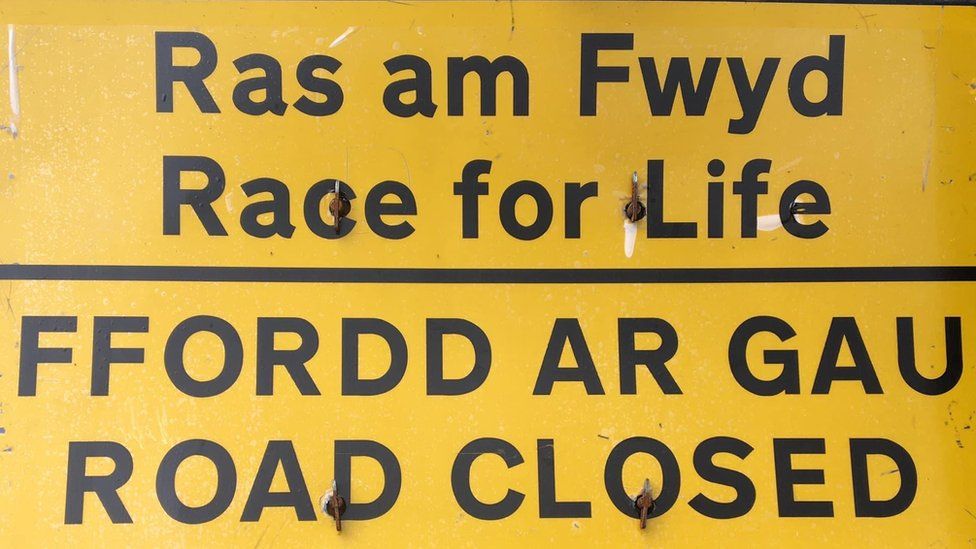
Ravenous runners' mouths will be watering at the thought of a "race for food".
That is what the Welsh translation of a road sign pictured in Cardiff has promised instead of the planned Race for Life.
Cancer Research's run takes place every year and is celebrating its 30th anniversary in 2023.
The gaffe follows the misspelling of the English word "school" and the Welsh word "ysgol" outside a Swansea school.
They appeared as "shcool" and "ysool" last month.
The latest translation mishap appears to have occurred due to a missing letter for the word "fywyd" - Welsh for "life" - which leaves the sign with the Welsh word for food "fwyd".
- Swansea gas workers misspell school when repainting road
- Sign spelling gaffes from across Wales
- Llandudno Welsh road sign translation error branded an insult
- E-mail error ends up on road sign
The error was said to have been spotted on Cardiff's North Road, near the Royal Welsh College of Music and Drama, on Monday morning.
Cardiff Council has been contacted for comment.
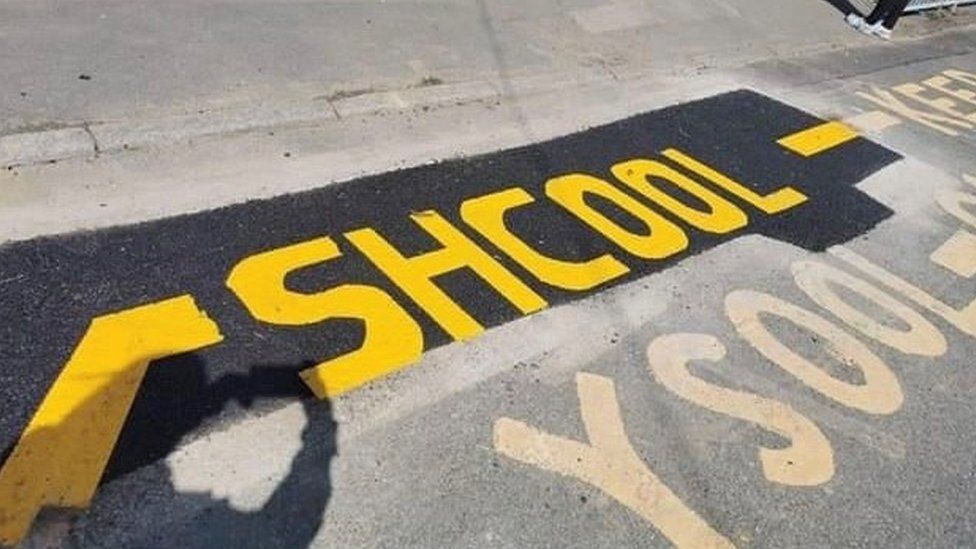
There is a long list of examples of Welsh translation blunders happening across Wales.
Gaffes have appeared on road instructions, supermarket signs, government messages and maps.
This week a citizenship oath written in Welsh was criticised for asking people to curse at God.
Last month there was an error in the UK government's emergency alert text that resulted in it mentioning a Slovenian ski resort.
Deputy Prime Minister Oliver Dowden blamed it on autocorrect.
Related Topics
- Cardiff
- Welsh language
Sunday, May 7, 2023
Translation technology jeopardizes Afghan asylum-seekers - PBS NewsHour - Translation

The humanitarian situation in Afghanistan has worsened since U.S. forces withdrew in 2021. For Afghans applying for asylum, the process is proving increasingly difficult, and technology is causing some claims to get lost in translation. Andrew Deck, a reporter for Rest of the World, and Leila Lorenzo, policy director at Respond Crisis Translation, join Ali Rogin to discuss.
Saturday, May 6, 2023
10 Indian languages to get technical-term dictionaries - The Hindu - Dictionary

The Commission for Scientific and Technical Terminology (CSTT), which works under the aegis of the Union Ministry of Education, is rushing to create technical and scientific terminology in 10 Indian languages underrepresented in the learning landscape.
The CSTT will bring out what it calls fundamental (basic) dictionaries with 5,000 words per language, in three to four months. These will be in digital, searchable format, and free of cost. About 1,000-2,000 copies will be printed in each language.
Bodo, Santhali, Dogri, Kashmiri, Konkani, Nepali, Manipuri, Sindhi, Maithili, and Sanskrit are a part of the list of 22 official languages of India’s Eighth Schedule. However, there is a paucity of study material created in them, primarily because of a lack of words to describe scientific phenomena and technical terms. The sparse content available was confined to the primary school level that used English words when regional vocabulary was unavailable.
15 subjects
The immediate focus is to cover 15 disciplines: journalism, public administration, chemistry, botany, zoology, psychology, physics, economics, Ayurveda, mathematics, computer science, political science, agriculture, civil and electrical engineering. These will enable textbook formulation at the middle- and senior-school as well as university levels.
The dictionaries will be distributed to State education boards, universities, engineering institutes, and the National Testing Agency that conducts entrance examinations such as the Common University Entrance Test (CUET), Joint Entrance Examination (JEE) Main, and University Grants Commission (UGC)-National Eligibility Test (NET) to aid in preparation of content.
The national language list, when created in 1950 had 14 languages. Sindhi was added in 1967; Konkani, Manipuri, and Nepali in 1992; and Bodo, Dogri, Maithili, and Santhali in 2004.
“There is a lack of content and linguistic resources in these 10 languages, leading to a lack of availability of learning material in these languages,” Prof. Girish Nath Jha, chairperson of the CSTT, Ministry of Education, said.
The CSTT, which was set up in 1961, has the mandate of evolving technical terminology in all Indian languages. The organisation is finalising several memoranda of understanding (MoUs) with prominent institutes, including IIT Bombay, for quick online dissemination.
The move assumes importance as the National Education Policy 2020 has espoused the use of regional languages as a medium of education in both school and college.
Following this, the government has taken several initiatives such as introducing engineering and medical courses in regional languages in several States. The UGC has also said that it will soon release a road map to introduce undergraduate and postgraduate courses in regional languages in all disciplines, including commerce, humanities, and science.
In June, the Bar Council of India (BCI) also constituted a panel to formulate recommendations on how to introduce courses in regional languages in law colleges.
Related Topics
language
Google AR translation glasses: why it's finally time for them to become reality - TechRadar - Translation
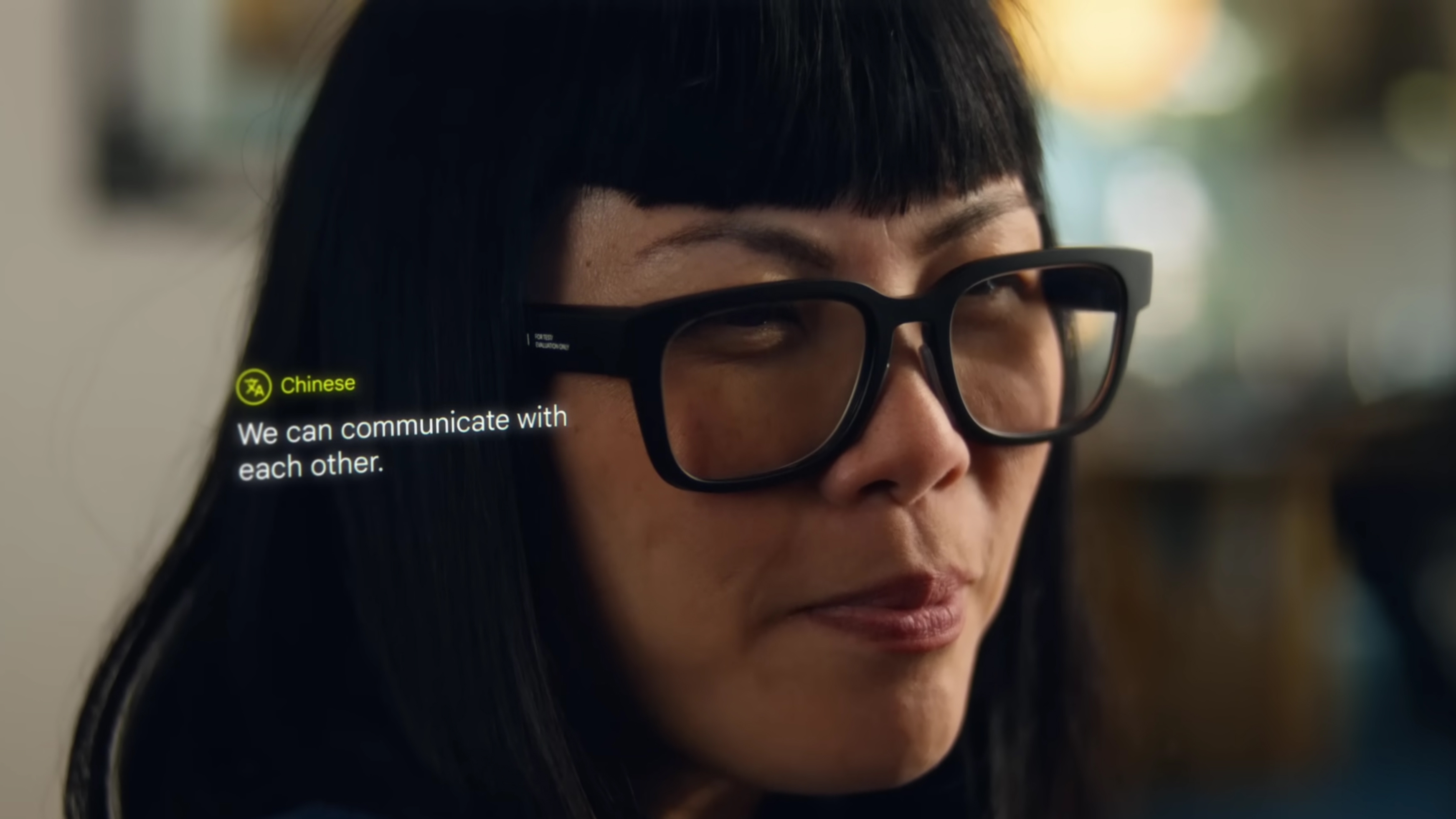
Almost exactly a year ago, Google showed us one of the most mind-blowing tech demos in recent times – AR glasses that could instantly translate what someone was saying to the wearer in another language, all in real-time. These Google Glass descendants could give us, as Google claimed, "subtitles for the world".
Unfortunately, as is often the case with Google demos, there was a problem – these AR translation glasses were only "an early prototype" that Google had been testing. The Vaporware Alarm Bells started ringing, and Google has since gone worryingly quiet on the concept.
That's a shame, as Google's AR translation glasses are one of the few hardware ideas of the past few years that promise to solve a big problem, rather than a minor inconvenience. As Google said last year, the technology could break down language barriers, while helping the deaf or hard of hearing to follow conversations.
But all is not lost. We're in the run-up to Google IO 2023, which starts on May 10 and gives Google a chance to tell us how its AR translation glasses are progressing. It's an opportunity that Google needs to take, if we aren't to lose faith in the whole concept actually becoming reality.
We don't need Google to announce a finished consumer product or shipping dates at IO 2023. But if the keynote passes without a mention of its live-translation glasses, we'll have to assume they've been given a First Class ticket to the Google Graveyard (opens in new tab). Fortunately, there are good reasons to think this isn't the case.
Lost in translation
Google's plan to give us the sci-fi dream of live translation tech actually dates back to 2017, when it introduced the original Google Pixel Buds alongside the Pixel 2. Back then, Google said real-time translation would work "like having a personal translator by your side", but reality failed to live up to that promise.
Even six years on, the process of performing live translation with the Google Pixel Buds Pro is a clunky experience, as you can see in the demo below. The promise of Google's AR translation glasses is that they could simplify this, showing you the other person's translated response as text in front of your eyes, rather than interrupting the flow by blasting it into your ear.
We don't yet know if the technological stars have aligned in order to make this happen, but some increasingly hot competition (and Google's own research) appears to be shoving it in the right direction.
Since Google demoed its AR translation glasses, we've seen several companies demo similar concepts. The best so far have arguably been TCL's RayNeo X2 AR glasses, which we had the pleasure of trying at CES 2023.
TechRadar's Managing Editor Matt Bolton called the RayNeo X2s "the most convincing proof of concept for AR glasses that I've seen so far", with the key demo being – you guessed it – live translation and subtitling.
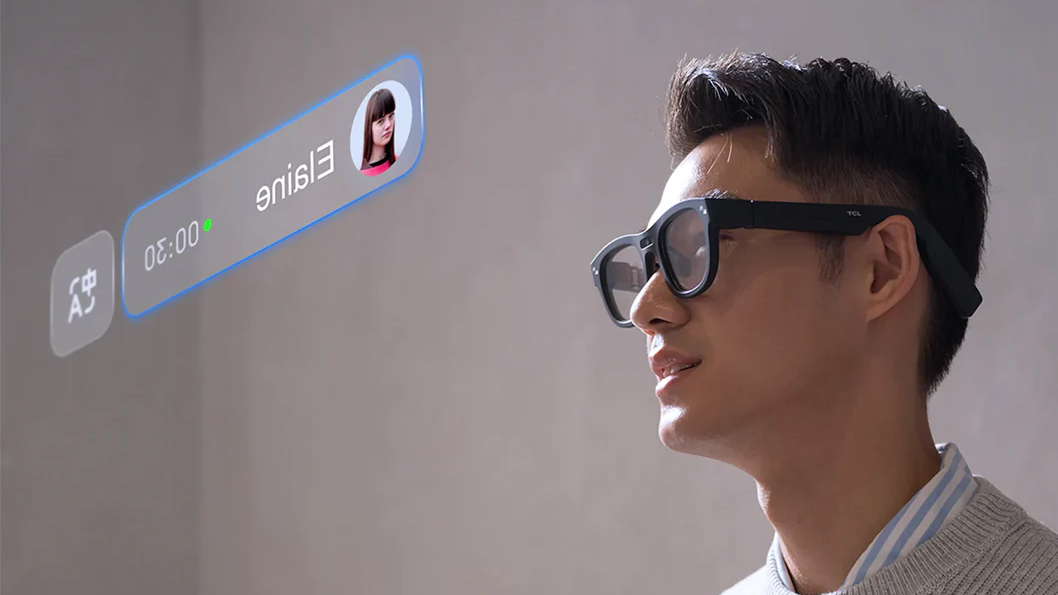
While there was a slight delay of two seconds between a person speaking and their question being translated into text at the bottom of the glasses, Matt Bolton was able to have a whole conversation with someone who was speaking entirely in Chinese. Ideally, both people need to be wearing AR glasses for a full conversation to take place, but it's a good start.
TCL isn't the only company to produce a working prototype of concept glasses similar to what Google showed last year. Oppo's Air Glass 2 managed to trump rivals like the Nreal Air and Viture One by offering a wireless design, which means you don't need a cable to pair the specs with your Oppo smartwatch or phone.
Sadly, the Air Glass 2 are unlikely to launch in western markets, and it's actually more likely that one of the other tech giants could steal Google's live-translation thunder. Cue Meta's screeching left-turn from the metaverse towards its intriguing side-hustle, announced in February 2022 (opens in new tab), to make a 'Universal Speech Translator'.
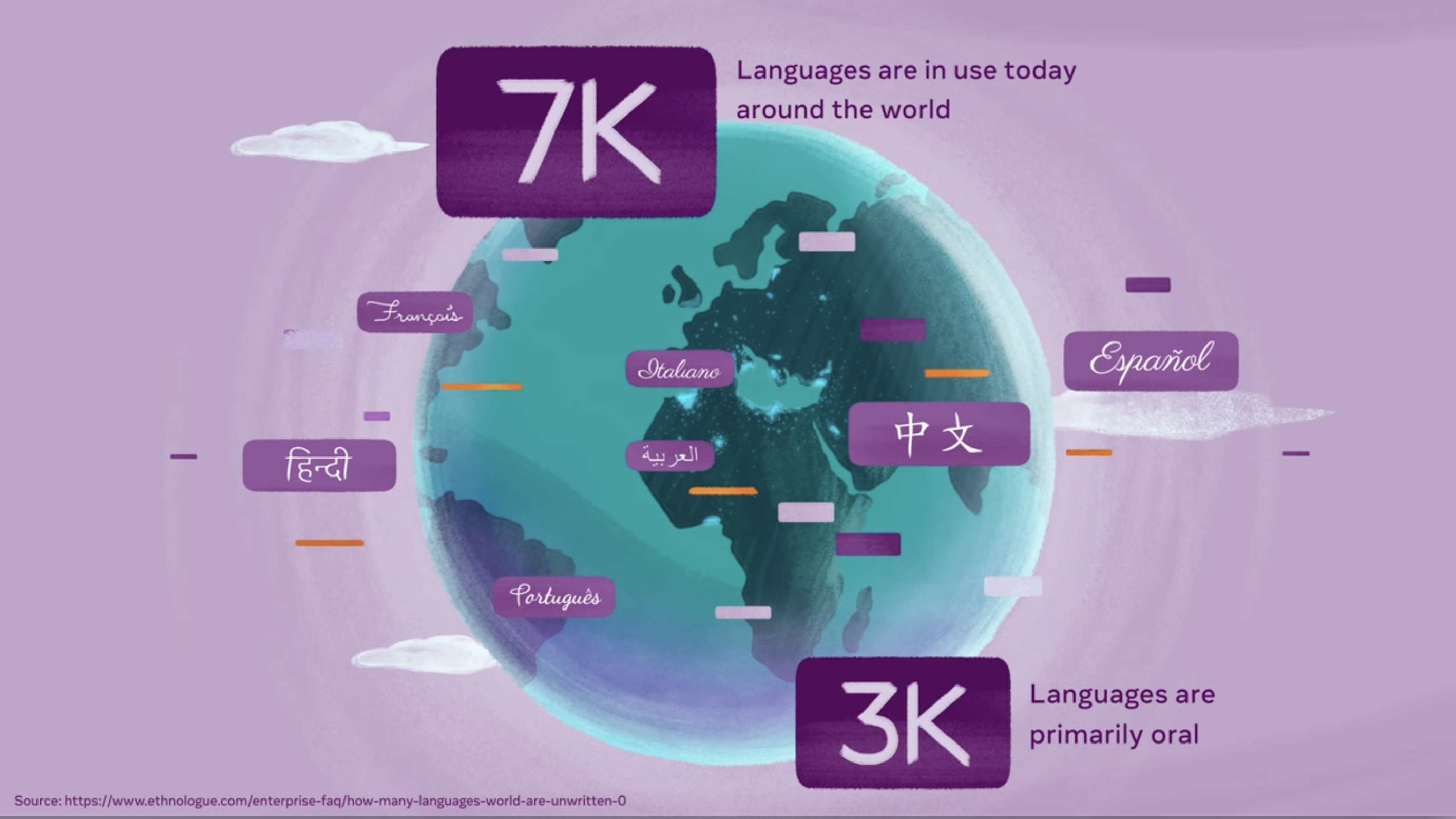
As the name suggests, this project aims to use machine learning and AI to give everyone "the ability to communicate with anyone in any language", as Mark Zuckerberg claimed. Crucially for Google's AR translation glasses, Meta also promised that "with improved efficiency and a simpler architecture, direct speech-to-speech could unlock near human-quality real-time translation for future devices, like AR glasses".
With Meta apparently planning to launch those AR glasses, currently dubbed Project Nazare, sometime in 2024, the heat is definitely on for Google to get moving with its AR translation specs – and ideally that means announcing some more concrete news at Google IO 2023.
Speech therapy
Will Google actually be in a position to announce a development for its AR Translation glasses at its big developer conference next week? So far, there have been no rumors or leaks to suggest it will, but in recent months it's become clear that Google Translate, and languages in general, remain one of its big priorities.
In March, Google's AI research scientists excitedly revealed more information about its Universal Speech Model (USM) (opens in new tab), which is at the heart of its plan to build an AI language model than supports 1,000 different languages.
This USM, which Google describes as a "family of state-of-the-art speech models", is already used in YouTube to generate auto-translated captions in videos in 16 languages (below), allowing YouTubers to grow their global audience.

Google says this AI has been trained on 12 million hours of speech and 28 billion sentences of text, spanning over 300 languages. That's some hefty training data that could hopefully make a significant contribution to AR translation glasses, like the ones that Google demoed a year ago.
Unfortunately, there's been little evidence that Google's recent advances have been making their way into Google Translate. While the company announced last year that it had added 24 languages to Translate – taking it to a total of 133 supported languages – its progress has seemingly plateaued, with rivals like DeepL (opens in new tab) widely considered to be more accurate in certain languages.

Still, Google has made advances elsewhere, revealing in February that Translate will soon become much better at understanding context. It will, for example, be able to understand if you’re talking about ordering a bass (the fish) for dinner or ordering a bass (the instrument) for your band.
Google added that Translate will, for a handful of supported languages, start using “the right turns of phrase, local idioms, or appropriate words depending on your intent", allowing translated sentences to match how a native speaker talks.
All of this again sounds like an ideal foundation for AR translation glasses that work a little more like Star Trek's Universal Translator, and less like the clunky, staccato experiences we've had in the past.
Seeing is believing
Google already has plenty to talk about at Google IO 2023, from the new Google Pixel Fold to Google Bard, and the small matter of Android 14. But it does also feel like a now-or-never moment for its AR translation glasses to take a sizable step towards becoming reality.
This year, Google has already been attacked by the rise of ChatGPT and, next month, it looks likely that we'll see the long-anticipated arrival of the Apple AR/VR headset at WWDC 2023. If it wants to be seen as a hardware innovator, rather than a sloth-like incumbent, it needs to start turning some of its most innovative ideas into real-world objects.
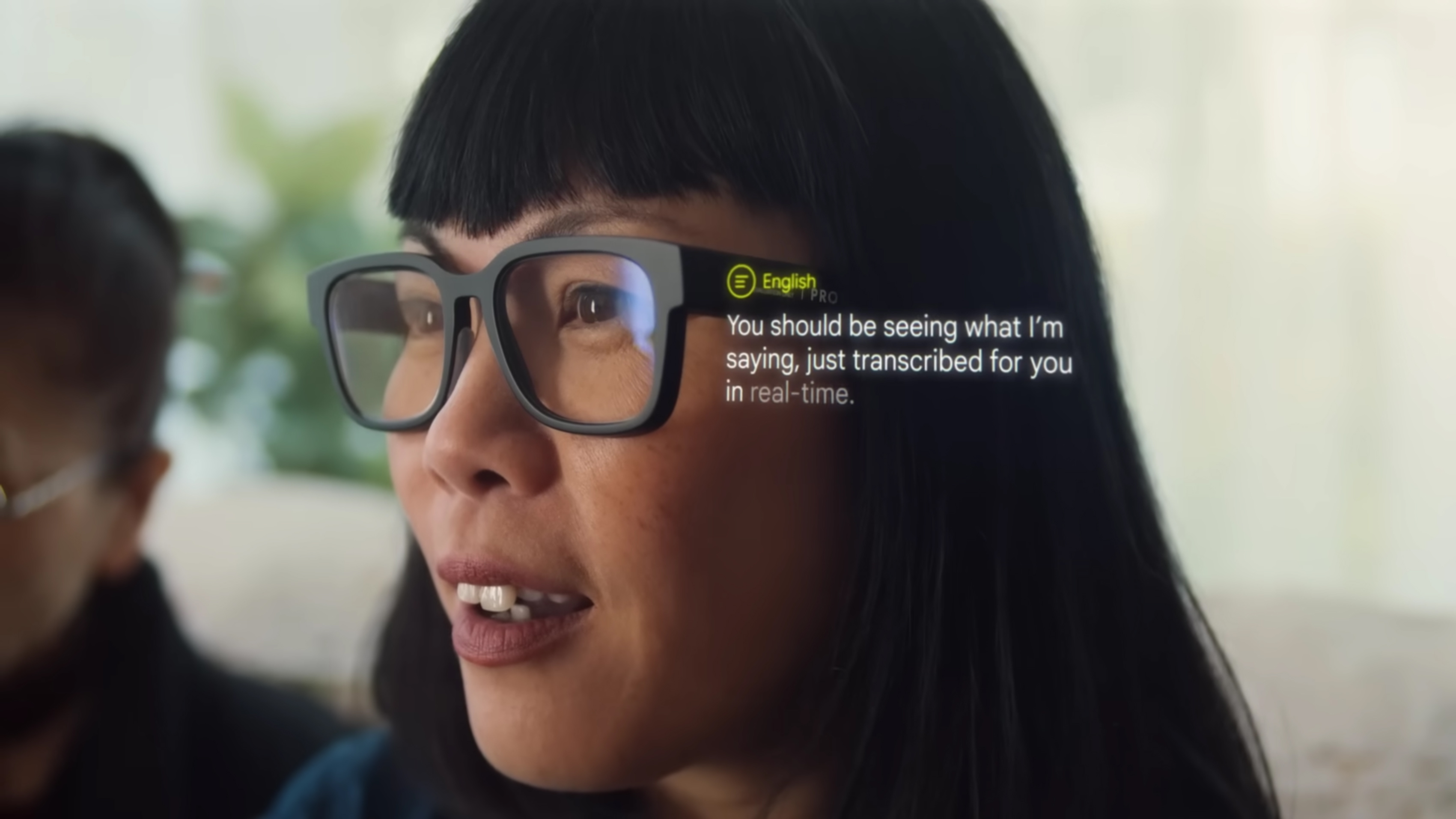
In some ways, Google's AR Translation Glasses feel like the ideal contrast to Apple's mixed-reality headset, which analysts have predicted will throw everything at the wall to see which use-case sticks.
By contrast, a simpler wearable that does one thing well – or at least better than its recently-launched rivals – could be just the boost Google needs during a year when it's seemingly been under attack from all sides. We're looking forward to seeing its response at Google IO 2023 – and will be keeping a close eye on its presenters' spectacles.
Mark is TechRadar's Senior news editor. Having worked in tech journalism for a ludicrous 17 years, Mark is now attempting to break the world record for the number of camera bags hoarded by one person. He was previously Cameras Editor at Trusted Reviews, Acting editor on Stuff.tv, as well as Features editor and Reviews editor on Stuff magazine. As a freelancer, he's contributed to titles including The Sunday Times, FourFourTwo and Arena. And in a former life, he also won The Daily Telegraph's Young Sportswriter of the Year. But that was before he discovered the strange joys of getting up at 4am for a photo shoot in London's Square Mile.
Friday, May 5, 2023
Genius English Translations – Anuel AA, DJ Luian, Mambo Kingz - Mejor Que Yo (English Translation) - Genius - Translation
[unable to retrieve full-text content]
Genius English Translations – Anuel AA, DJ Luian, Mambo Kingz - Mejor Que Yo (English Translation) Genius
COMMents